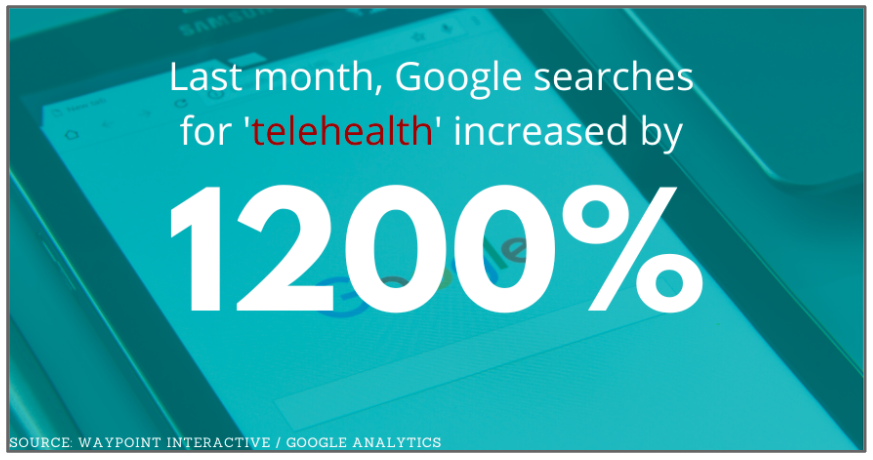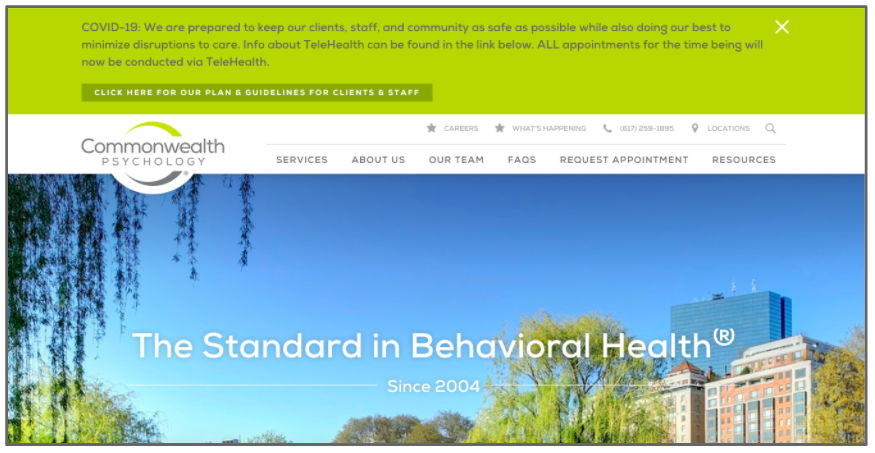The Rise of ‘Telecare’: MA Human Services Agencies Are Innovating Their Way Through COVID-19
The world needs more than just telemedicine.
Last month, Google searches for ‘telemedicine’ rose by 645%. ‘Telehealth’ saw an even larger leap: queries rose by over 1200%. Everyone—and their doctors—are scrambling to locate and learn about how healthcare can be done during COVID-19.

But there is another type of digital support on the rise. One less discussed in news cycles yet flourishing across Massachusetts and across the country.
Human services agencies are stepping up to deliver ‘telecare,’ finding innovative ways to provide their services virtually to those who need them the most.
Getting telecare services up and running.
One provider leading the telecare charge is NuPath, a human services agency out of Woburn, MA, that rapidly transitioned their programs, services, and administration to operate completely online as soon as the coronavirus hit the state.
“It’s been amazing to see how fast we got up and running,” says Brett Reily, Vice President of Marketing and Communications at NuPath. “From the moment we begin with our virtual morning meetings, our days are packed with activities—exercise classes, art classes, job trainings—all happening online. Everything is changing, but the fact that we can continue our programs has meant the world to the families we serve.”
“Our days are packed with activities—exercise classes, art classes, job trainings—all happening online.”
Brett Reily, Vice President of Marketing and Communications at NuPath
What accounted for the relatively smooth transition? Reily and others cite a focus on innovation and organizational readiness as integral to NuPath’s success. In an industry that rarely receives attention and resources for Big Tech, NuPath has taken matters—and technology—into their own hands.
“Long before this crisis, we had strategically positioned ourselves to use technology in our programs,” says Dan Lannan, NuPath’s Senior Vice President of Operations. “We knew the world was going that way and wanted to be at the forefront. Since having to close our day programs, we’ve activated numerous technologies that were already in place and ready to go.”
Chief among those technologies is Navigating Life, a mobile app designed to better connect families, clinicians and loved ones living with disabilities. NuPath adopted the app in 2018, quickly implemented it across their organization, and has been using it to strengthen connections ever since. Now, when parents literally cannot see their own children in the case of residential services and support programs, the app has been a lifeline for sustaining those connections.
On the administrative side, organizational readiness proved just as critical. The back end of human services has no shortage of paperwork, from contracts to financials to compliance and beyond. Having already made all their records electronic, NuPath was poised for this crisis before anyone realized it was coming.
“We knew the world was going that way. We wanted to be at the forefront.”
Dan Lannan, Senior Vice President of Operations at NuPath
Learning from others.
How do you pioneer new ways of delivering care without jeopardizing its quality?
For providers like NuPath, whose entire business hinges on delivering personalized, compassionate care to the people they serve, this is the burning question.
One place they’re searching for answers: outside their industry. A core component of their thought-leadership is that to find solutions for your community, you have to look beyond it.
One telehealth leader to watch is Commonwealth Psychology Associates, a Boston-based multi-specialty psychological counseling and behavioral health center that, similarly to NuPath, implemented telehealth services well before COVID-19.

Committed to being at the forefront of the mental health industry and increasing access to care, the company not only transformed their internal operations to provide virtual therapy and counseling as well as psychiatry and medication management, they became advocates at the state level.
Caitlin Schwager, CPA’s Director of Communications, is a regular participant in a roundtable discussion group with Boston City Councilor Annisa Essaibi George to strategize about improving access to mental health care in Boston. She is also active with her Commonwealth Psychology colleagues in working with state lawmakers to create legislation that would require health insurance companies to provide expanded coverage for telehealth services as well as equal reimbursement rates for providers. Traditionally, telehealth mental and behavioral services have not been reimbursed at the same rate—if at all—as in-person services.
“The big silver lining is the increase in telehealth accessibility.”
Caitlin Schwager, Commonwealth Psychology Associates
Like NuPath, Schwager’s company had a digital infrastructure in place, so that when the crisis hit, they could quickly transition all their work online.
“The big silver lining here is the increase in telehealth service and telehealth accessibility,” says Schwager, who was recently featured on ABC News to discuss the nuances of insurance coverage for mental health telehealth services.
Beyond having a digital infrastructure in place, she attributes her company’s telecare success to their ability to be flexible, adaptive, and to keep the big picture in focus.
“Especially in the care industry, our day-to-day is so consuming right now,” she explains. “But having leaders who can see what might be coming down the road, what trends in technology are coming up, and then plan creatively and strategically for that is what makes all the difference.”
Out of the fire and into the future.
What good can come out of a pandemic? Even as the world endures so much pain and suffering, positive changes, incredibly, miraculously, are happening too.
“Industries that have always been overlooked, that have been thought of as ‘the underdog,’ are suddenly moving forward in ways the world didn’t expect,” says Reily. “We’re innovating our way forward.”
Communities that have always deserved the best that technology could offer are starting to get connected to those services. The VA, for example, has leveraged telehealth platforms to ensure that Veterans continue to receive high-quality care during the coronavirus.
In government, too, issues that had been stuck for years are getting resolved practically overnight. Last month Governor Baker issued an executive order requiring private insurance companies to apply the same coverage to virtual visits as they do to in-person visits, while the federal administration lifted telehealth restrictions for seniors on Medicare.
Even as the world endures so much pain and suffering, positive changes, incredibly, miraculously, are happening too.
Might such regulation hold beyond COVID-19? Perhaps this moment of immense pressure has galvanized leaders to act, putting into law measures that increase accessibility and equity for all.
Meanwhile, those delivering care are getting more creative and more innovative than ever before. And what they create now, in this time of dire need, may forever change how we care in the future.




Trackbacks & Pingbacks
[…] as did other providers including NuPath Inc., in Woburn, MA, where they launched an array of virtual programming to keep their community engaged. Having made technological innovation a cornerstone of their […]
Leave a Reply
Want to join the discussion?Feel free to contribute!